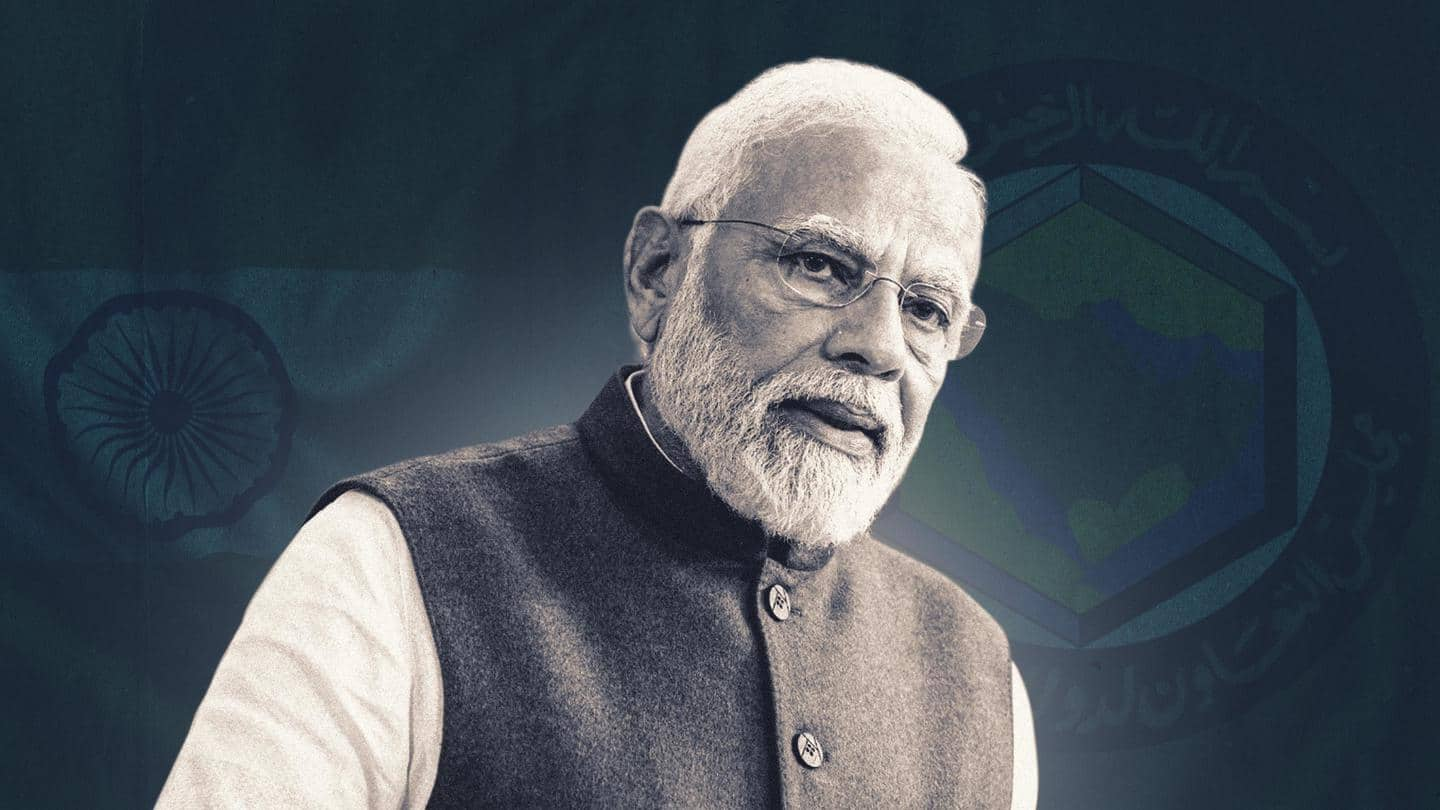
Prophet remarks: Reasons why India can't ignore Gulf outrage
What's the story
The ongoing controversy over former Bharatiya Janata Party (BJP) spokesperson Nupur Sharma making insulting statements against Prophet Muhammad has provoked negative reactions from Gulf countries.
Following the protests and call for the boycott of Indian products, BJP suspended Sharma from the party nearly ten days after making the comments.
Here we try to understand why India cares so much about these nations.
Context
Why does this story matter?
Prime Minister Narendra Modi's launch of the Link West initiative strengthened the ties of India with Gulf and Middle Eastern Asian nations.
He also engaged with the Gulf leaders of Saudi Arabia, Qatar, Oman, and the United Arab Emirates recently for more economic and cultural exchanges.
One dispute sparked by certain leaders can tarnish the heritage of friendship, collaboration, and goodwill.
Significance
What do Gulf nations bring for India?
Trade and commerce, as well as history and culture, underpin India's longstanding ties with the Gulf nations.
India also receives a significant amount of remittances because nearly 89 lakh of Indians reside and work in Gulf nations.
Indians, in particular, make up over a third of the UAE's population.
India too relies significantly on the Gulf area for its energy needs.
Details
Strategic Gulf Cooperation Council (GCC)
India's relations with Gulf Cooperation Council (GCC) comprising Qatar, UAE, Oman, Kuwait, Saudi Arabia, and Bahrain are crucial in maintaining political stability in the Asian region and are primary source of oil imports.
The GCC is also critical in deciding foreign policies and even the domestic situation of India.
The council can enable tremendous cooperation in the future of geopolitics and neutralize Chinese aggression.
Diaspora
Indian diaspora in GCC nations
There are around 6.5 million Indian workers in GCC member nations.
It is a key investment and commerce destination, as well as a source of employment for India, the world's second-most populous country.
India has traditionally had strong and friendly connections with the Gulf states.
One dispute sparked by certain fringe leaders should not tarnish the heritage of friendship, collaboration, and goodwill.
Saudi
Partnership with Saudi Arabia
Between 2005 and 2007, India and Saudi Arabia strengthened their political, security, defense, economic, and cultural connections.
The two countries signed the Delhi Declaration in 2006, committing to a strategic energy alliance.
Saudi Arabia acknowledged India's role as a significant global oil importer, with the Gulf Cooperation Council (GCC) members meeting more than half of its demands.
UAE
Strong bilateral partner UAE
The United Arab Emirates (UAE) is India's second-largest export destination and third-largest commercial partner after the United States.
In 2021-22, bilateral trade between India and the UAE was valued at $72.9 billion, with India contributing for $28.4 billion of the total.
Total commerce between India and the UAE is set to exceed $100 billion by 2026 under the recently negotiated Comprehensive Economic Partnership Agreement.
Oil
India's dependence on oil imports from Gulf
In 2006-07, India sourced crude oil from 27 countries; by 2020-21, India would have sourced crude oil from 42 countries.
Iraq was the biggest oil exporter to India in 2020-21, followed by Saudi Arabia.
Iraq's contribution climbed from around 9% in 2009-10 to more than 22% in 2020-21.
Over a decade, Saudi Arabia's proportion of India's crude imports has stayed stable at around 17-18%.
Food
Gulf countries are reliant on India too
The Gulf countries rely heavily on food and grain imports.
More than 85% of their food and 93% of their grains are imported. India's main exports include rice, buffalo meat, spices, marine goods, fruits, vegetables, and sugar.
India's exports to GCC nations have climbed by 58.26% to around $44 billion in 2021-22, up from $27.8 billion in 2020-21.